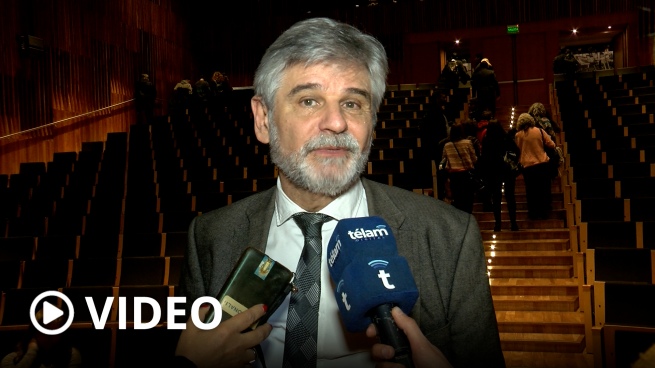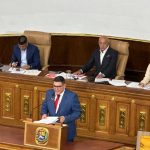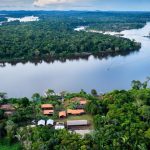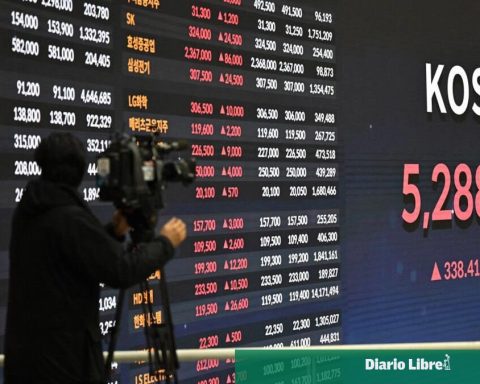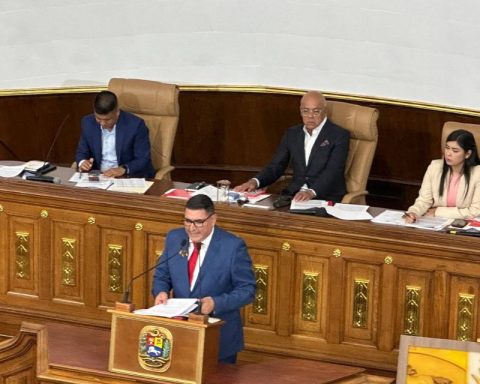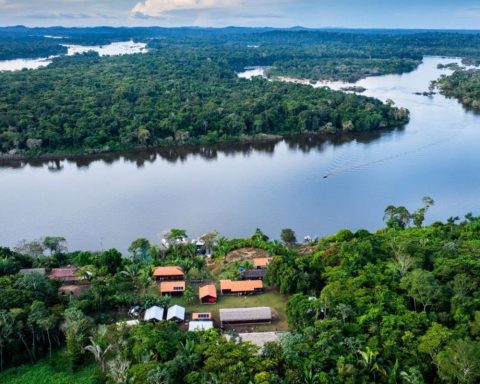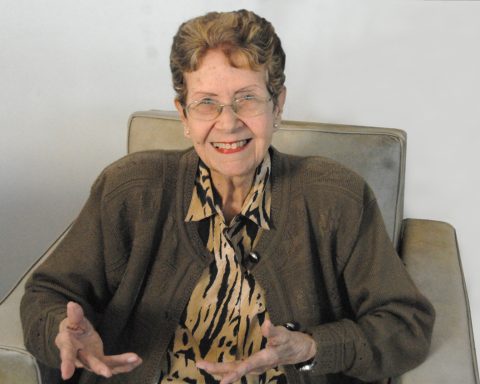The Minister of Science and Technology, Daniel Filmus, stressed this Tuesday that “you cannot think of a different Argentina without thinking about the contribution of the social sciences”, during the closing of the projects Pisac Covid-19in the Kirchner Cultural Center (CCK)together with more than 300 researchers who prepared studies with contributions and proposals for the construction of public policies in the post-pandemic.
The meeting “Contributions of the social sciences to public policies: proposals for the present and the future” that began at 10 am, was also attended by the Minister of Health, Carla Vizzotti, and the president of the National Agency for the Promotion of Research, the Technological Development and Innovation (R+D+i Agency), Fernando Peirano,
“You cannot think of a different Argentina without thinking about the contribution of the social sciences”maintained Filmus in the Argentine Chamber of the CCK and highlighted “the importance of investigations when defining legislation.”
And he added: “It is much more important to know why this legislation is not complied with and we are the social scientists who can say that behaviors are not changed by changing regulations.”

“It is we (social scientists) who can influence public policies to study what are those elements that can allow us to change behavior”, he pointed.
The minister added in his presentation: as “public officials we have to make sure that we can advance in research at the same time that we develop public policies to correct them as we apply themor, and not when they are late”.
For her part, Minister Vizzotti highlighted, in reference to the coronavirus pandemic, “a present state” and “an immense group of scientists who understood the historical moment and who put themselves at the service of generating evidence and it must be valued.”
“The decision of National government was to generate evidence through work with social scientists to think scenarios, behaviors and situations to be able to make decisions that have an impact on the well-being of the population“, he stressed.
Research in social sciences is central to thinking about a better Argentina
We agree with the Minister @carlavizzotti and more than 300 social scientists in deepening research in education, health, security and gender violence to build public policies. pic.twitter.com/Wzt9XeZjUr
— Daniel Filmus (@FilmusDaniel) August 9, 2022
He noted that joint work “must be institutionalized so that it does not depend on people” and stressed that “We are close to having a 100% Argentine vaccine.”
In turn, the social anthropologist and presidential adviser, Alexander Grimson, affirmed that “it is key that from the social sciences there is an orientation to facilitate the translation of the interpreter, the legislator and the legislator, because we need to continue working to build more bridges, because with more knowledge we are going to build a fairer country”, I observe.
The president of the National Agency for the Promotion of Research, Technological Development and Innovation (R+D+i Agency), Fernando Peiranoindicated that for this day more than 900 participants were registered, there were more than 625 and 40 exhibitions were held in different commissions.
He stressed that, together with the national government, “we are committed to summoning scientists to help us have tools that allow us to face the unknown and unexpected”in reference to the pandemic, knowing that “this was going to give each Argentine more opportunities to go through that situation.”

Meanwhile, the national deputy Mara Brawer of the Front for All, emphasized that the pandemic “showed the importance of public policies sustained over time” and warned that “a policy cannot be developed in the face of an emergency situation if we have an underfunded State.”
“Both science and public policies need the accumulation of sustainability and the accumulation of knowledge,” he added.
The closure of the projects had the objective of generating a space for exchange between public officials and researchers to share and debate the results of the investigations.
The initiative was aimed at receiving associative research projects in Social and Human Sciences for the generation of new knowledge focused on the study of Argentine society in the Covid-19 pandemic and post-pandemic.
More than 6,700 researchers from all over the country prepared 90 network project proposals, of which 19 were selected by 24 specialists.
The projects were embodied in a collection called “States of the Matter” which consists of six books: Studies on the State, Government and public administration; Citizenship, mobilization and social conflict; social diversity; cultural consumption; and living conditions.
The proposals were evaluated by a commission of 24 specialists and 19 were selected to be presented according to the following thematic axes: security, violence and vulnerabilities; political identities, communication, gender and experiences in the territories; and transformations on the educational world and perspectives on its inequalities.
Other axes are the world of work and transformations in labor and income inequalities; state and public policies, public goods and regional blocs; and health, care tasks and gender relations.
The 19 selected projects are made up of a total of 210 research groups (or nodes), distributed in 43 national universities and another 20 public and private institutions of different types.
These networks cover 22 of the 23 provinces together with the City of Buenos Aires (CABA).
In terms of gender, 12 of the 19 projects are led by women and 70% of the nodes are also led by women.
The Pisac 2019 are projects led by the Ministry of Science and Education, the Council of Deans of the Faculty of Social and Human Sciences and the Latin American Council of Social Sciences (CLACSO).
